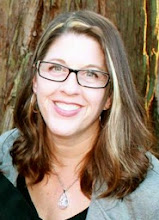
Nathan Bransford had an interesting blog post this morning about the
99-cent Kindle Millionaires. As I scrolled down to the comments section, I was waiting to see the word that always pops up whenever anyone is talking about self-publishing and I wasn't disappointed. The very first commenter gave a big thumbs up for anyone brave enough to get around the 'gatekeepers' of editors and agents.
The word gatekeepers always conjures up visions of high stone towers with agents and editors poised at the top with automatic weapons, ready to shoot down any new author who dares to try to enter the traditional publishing world. Here's the thing about gatekeepers like this - there aren't any.
Agents and editors don't exist to keep new authors out of the system. On the contrary, they are hungry for new talent and everyone wants to be the person with the next big thing. They comb their submissions looking for great writing and amazing new ideas. There were thousands of debut children's books published last year (I tried to find the exact number, but it is safe to say thousands.). So if you have submitted your writing and are getting nothing but rejections, it's not because the gatekeepers are barring your way.
It's because your work isn't ready.
Go back to the drawing board. Put that piece away and start working on something else. Go to some conferences or take some writing seminars. Get a great and honest critique group or at least one person who knows what they are doing who can help you get your next book in 'unpassable' shape.
The very first novel I wrote still hasn't sold, and I'm glad. When I look back at it there were so many things wrong with that manuscript that if it had been published, I'd cringe to look at it. Thank goodness for the agents and editors who gave me the time to hone my craft and get my writing up to a publishable level - and allowed me to be proud of that first book.
I'm not a fan of self-publishing. There, I said it. Don't get me wrong, I love my Kindle - the process of thinking about reading a book and actually reading it within two minutes is awesome. It's self-published books whether in print or ebook form that I don't like. I got in an argument with a good friend at a recent conference because he said being a self-publishing hater was downright un American. These people were the pioneers of the new literary frontier, they were taking matters into their own hands, going around the traditional establishment and making their own money. Right. I have no problem with all of that. There is one thing that keeps me from being a proponent of self-publishing: most self published books aren't very good. I have yet to read one that wouldn't have benefited from a heavy-handed editor or frankly, just more time honing their craft.
So what's the problem with that? So there are a bunch of mediocre self-published books out there. Who does it hurt? In my opinion, everyone. Most readers don't take the time to find out who published a book - whether it came from a big publishing house or a box in the author's garage. They just pick up a title and give it a try and if over and over again the quality of the writing is poor, how long is it until they decide that reading is a waste of time? That books today aren't well-written and that they'd spend their time better with Snooki and the gang at the Jersey Shore?
Apply the same principal to becoming a pilot. Let's say you spend a lot of time playing Apache Air Assault on Xbox and you routinely beat all your friends. You decide that you want to be a pilot, but don't want to waste time with flight school or those pesky tests. You put on that pilot's uniform and take the wheel of the nearest jumbo jet. How many planes would have to crash before the flying public decides that train travel is looking more appealing? (Yes, I did just compare writing fiction to something potentially life-threatening.)
I do think there is a place for self published non-fiction books. I know someone who is self publishing a book on a very specific method for playing blackjack and I think it will do well. There is a built-in audience for that kind of book and he has a 'platform' already set up so that people will go looking for his book. Unless you're a very well-known fiction author (or celebrity - don't get me started), that probably won't happen for you. Yes, I know there are a few (a very few) who are making money self-publishing ebooks. but these are the exception rather than the rule and I think that once the curiosity factor wears off, it will get even more difficult.
I do think that this will all sort itself out. I have to believe that the publishing industry will figure out an ebook model that works for everyone that will allow readers to get the books they want and writers to afford to create them. That a great book can still get a lot of traction by word of mouth and that quality writing will triumph in the end.
According to this
NYT op-ed piece, 81% of Americans want to write a book. At the same time, only 15% of Americans regularly read books. Gatekeepers or not, to me, this seems to be the real problem.














